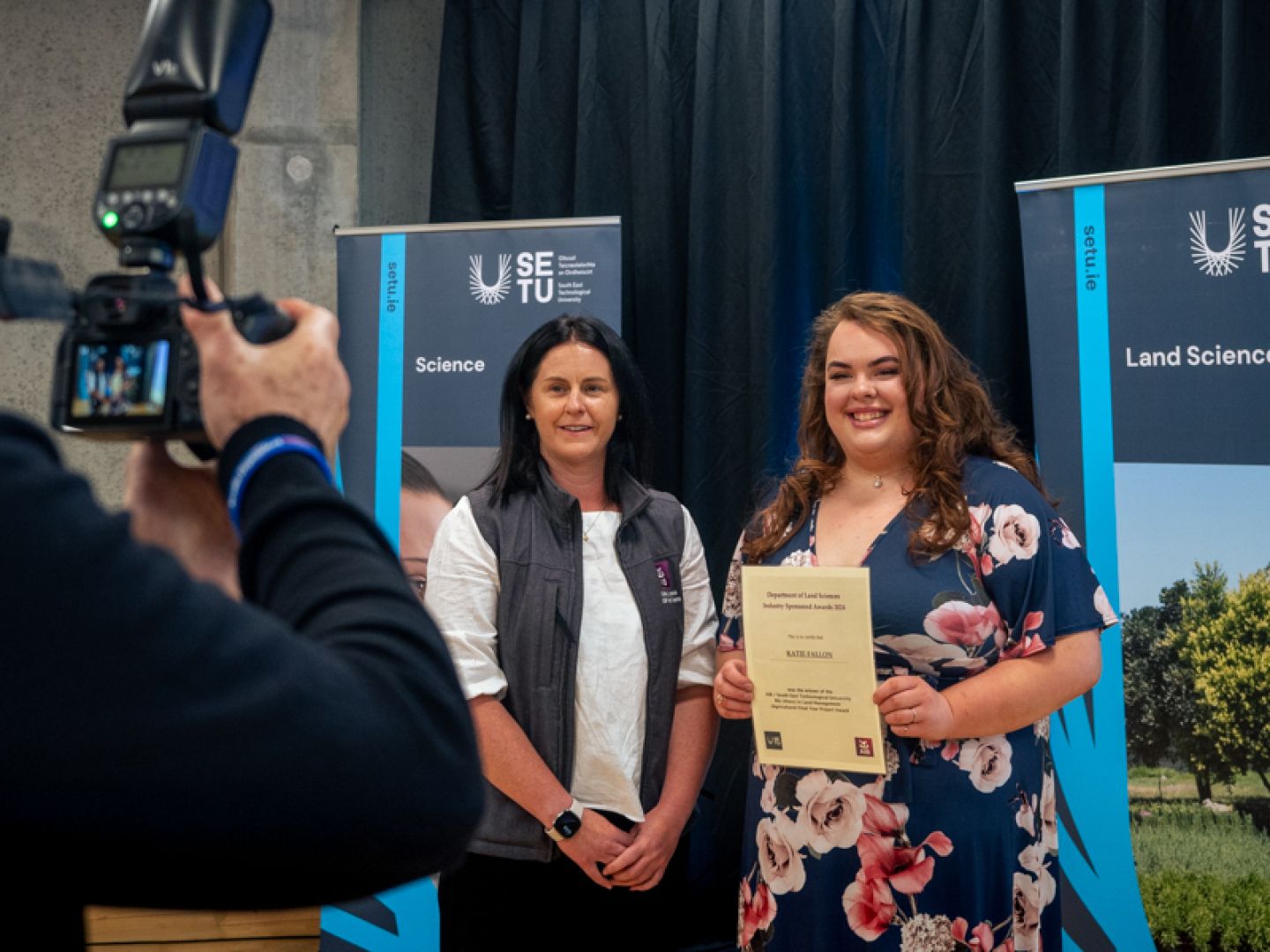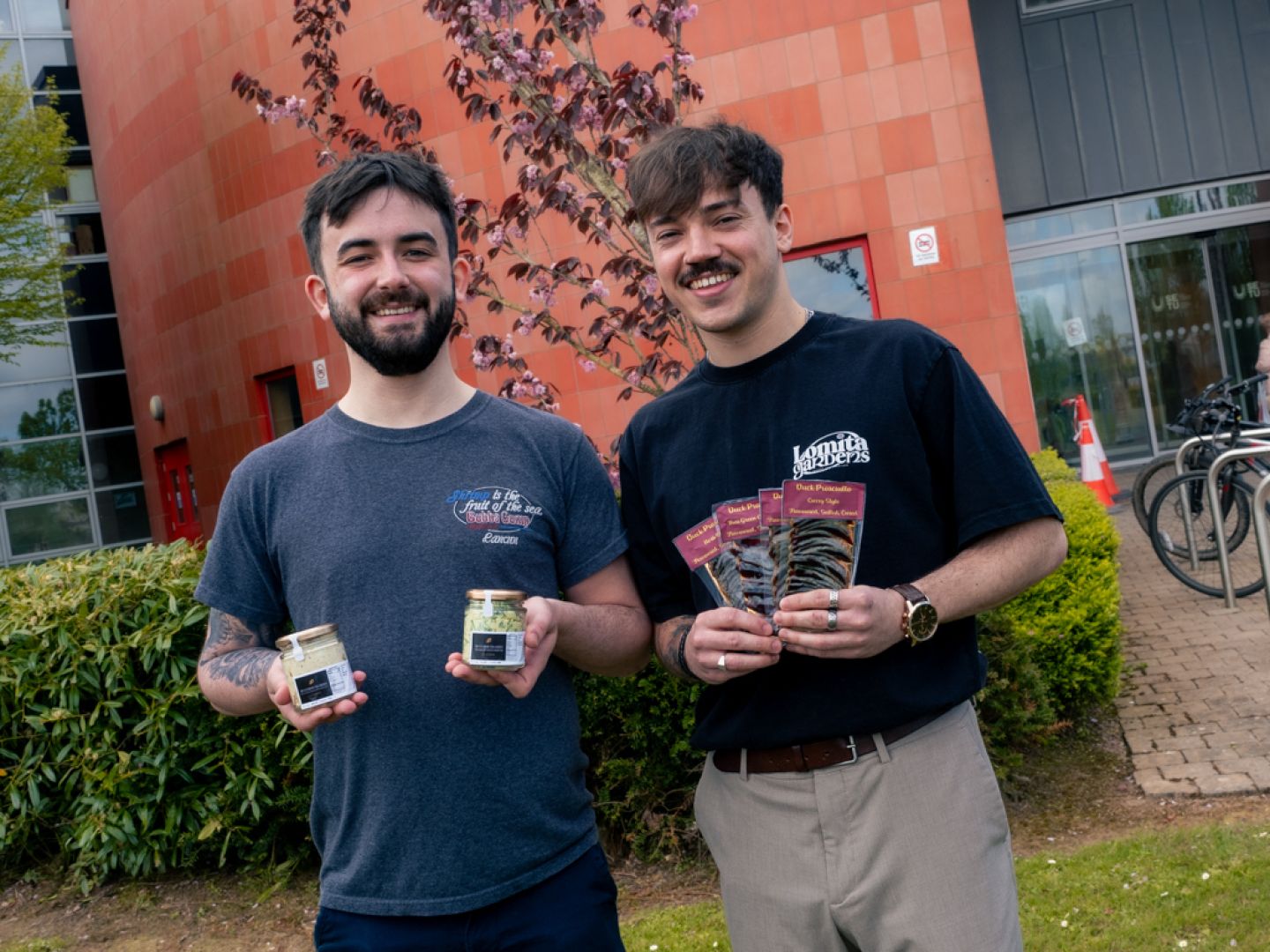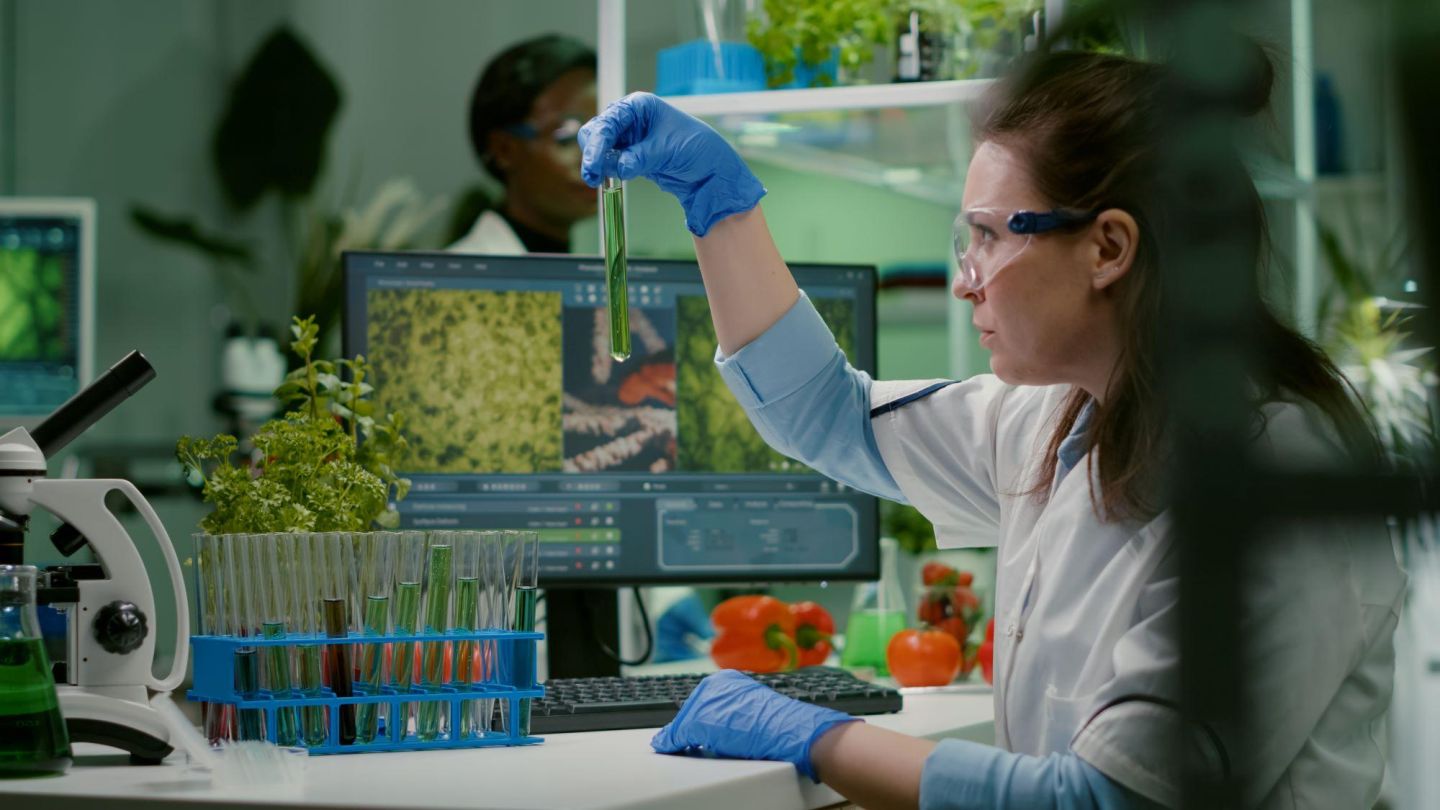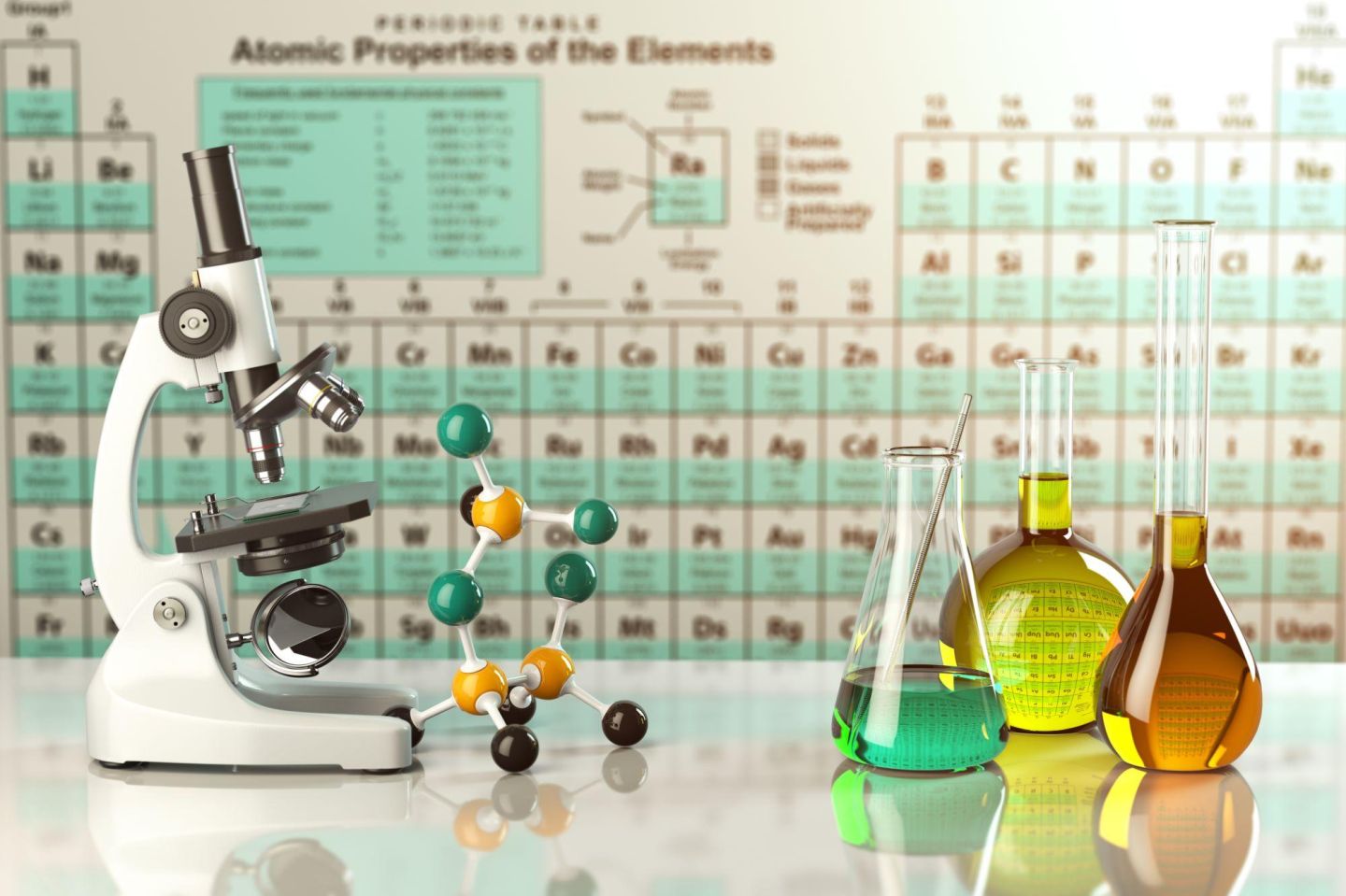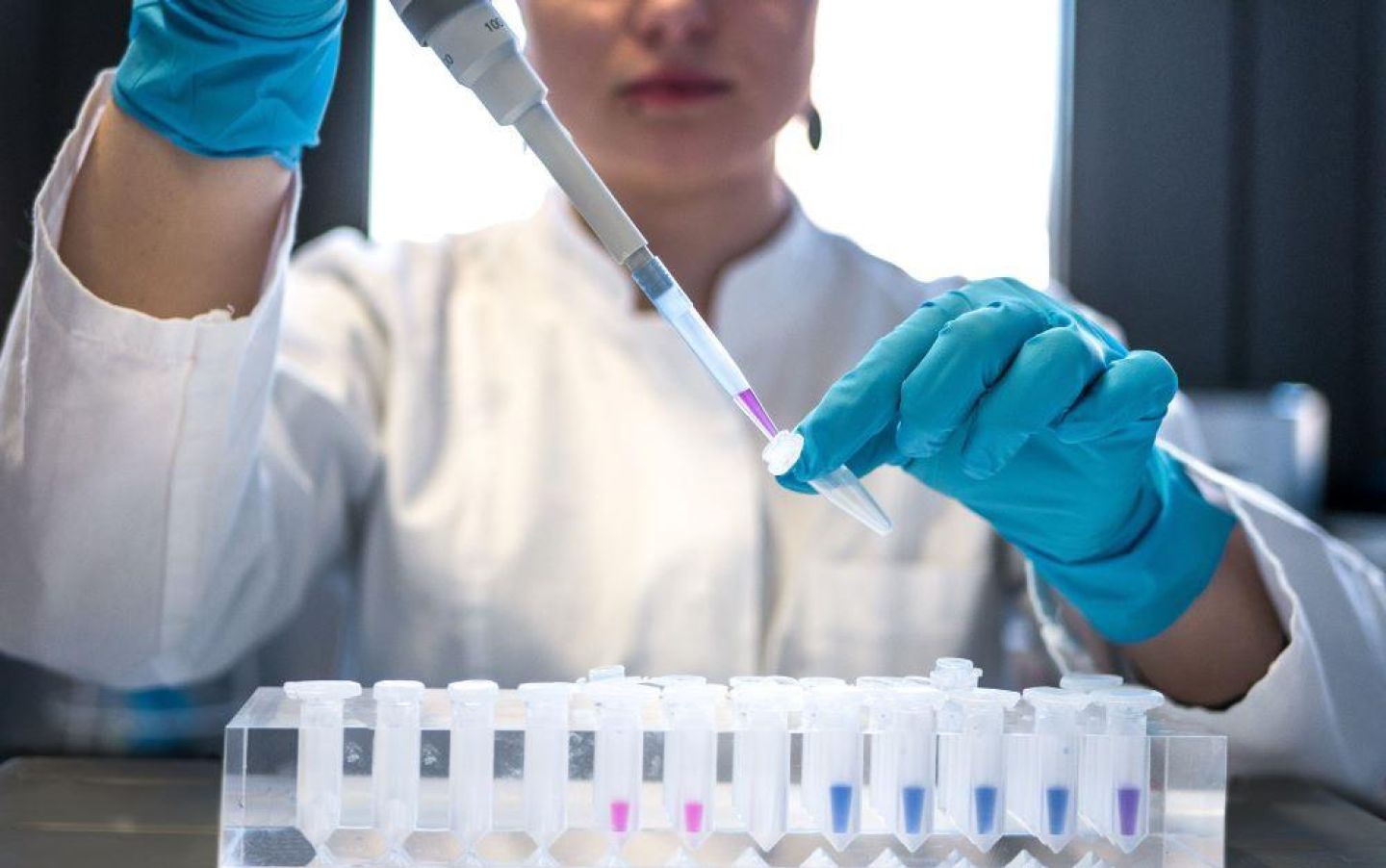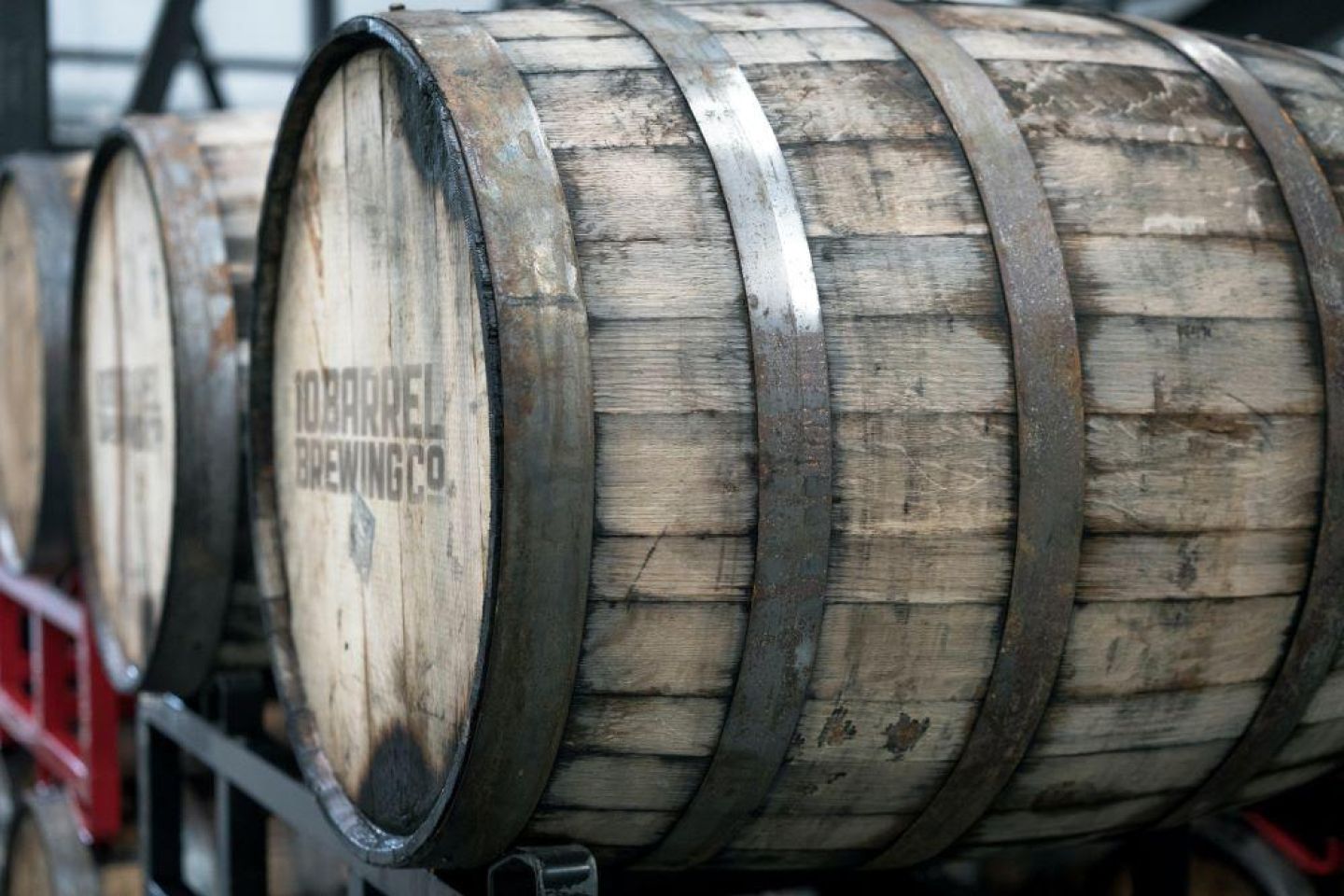Food Science & Innovation
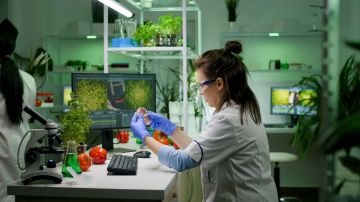
What is Food Science?
Food science is the multidisciplinary study of food ingredients and food products. Food scientists have a role in all aspects of the food chain from production at farm level to consumption. They use their scientific knowledge to ensure that the production, processing, preservation, evaluation, and distribution of food are efficient and safe.
What is the BSc (Hons) in Food Science and Innovation?
This is a four year, full time honours degree which can be chosen within the SE501 - Bachelor of Science (Hons) Common Entry Route. The modules in this course bring together science, business, enterprise and the culinary arts responding to the needs of the food industry. The degree will train you in food manufacture, analysis and safety in addition to business, marketing and innovation, giving you key skills for your future career. The programme includes real industrial type tasks such as market research, business plan development, product innovation and manufacture, and show casing of new products.
What subjects will I study?
At the outset there is a strong emphasis on the sciences such as biology, chemistry and physics to provide you with a good basis for the following years. In years 2, 3, 4 you will study specialist modules in food chemistry, processing, microbiology and quality management, business, marketing and innovation. In year 4 you will study cross-disciplinary modules bringing together science, business, innovation and culinary arts. Fourth year students will undertake a product innovation project to develop a food product idea from inception through its technical formulation, marketing and package development.
What are the unique features of BSc (Hons) in Food Science and Innovation?
You will learn a lot of practical skills in SETU Waterford laboratories and in year 4 you will learn practical culinary skills in the SETU Waterford training kitchens. The multidisciplinary approach to the programme ensures you will gain the competencies for all aspects of the food industry. We have close links with industry and the Teagasc Food Research Centres, as well as a research active staff, which ensure you will be exposed to the innovative food research and technologies currently employed within the Irish food industry.
BSc (Hons) in Food Science and Innovation industrial placement
A nine month placement in the food industry occurs in the third year of the course. This is supported by our food industry partners and is seen as critical to the overall learning experience and development of the students. The industrial placement will be organised by SETU Waterford staff and monitored by both the employer and SETU Waterford staff, with the student keeping a reflective work log. Work placement can be organised for Ireland or abroad.
The Industrial Placement will allow learners to apply and develop their skills in the food industry. The placement is designed to meet the needs of industry whilst providing the student with a broader skills-base. It is envisaged that the practical element of employment will complement the course content and help develop skills that are essential in today’s work environment.
Year 1
| Semester 1 | Semester 2 |
|---|---|
| Introductory Biology | Cell Biology and Biochemistry |
| Introductory Chemistry | Physical and Organic Chemistry |
| Introductory Physics | Physics for Scientists |
| Introductory Mathematics | Mathematics for Scientists |
| Introduction to ICT for Scientists | Choose two of the following electives: |
| Good Lab Practice & Core Skills | *Introduction to Biotechnology and Pharmaceutical Science |
| *Introduction to Food Science | |
| *Introduction to Modern Physics | |
| *Plant Biology | |
| *Science and Society |
Year 2
| Semester 3 | Semester 4 |
|---|---|
| Food Analysis | Food Microbiology |
| Microbiology 1 | Food Process Technology |
| Introduction to Nutrition and Human Physiology | Food Marketing & Regulation |
| Laboratory Data Analysis & Presentation | Environmental Monitoring |
| Bioanalytical Methods for the Food Industry | Chromatographic and Electrophoretic Techniques |
| Statistics for Scientists | The Professional Individual |
Year 3
| Semester 5 | Semester 6 |
|---|---|
| Placement | Total Quality Management |
| Food Safety Management Systems | |
| Sensory Analysis | |
| Introduction to Research Methods | |
| Food Formulation | |
| Nutrition and Public Health |
Year 4
| Semester 7 | Semester 8 |
|---|---|
| Food Process Technology 2 | Food Shelf Life Control |
| Business Managements for Food Scientists | Advanced Quality Methodologies |
| Food Innovation and Entrepreneurship | The Food Sector: Environment and Sustainability |
| Food Traceability and Genomics | Food Product Development |
Leaving Cert: Entry requirements for the BSc (Hons) in Food Science & Innovation:
2 subjects: H5
4 subjects: O6/H7
English or Irish: O6/H7
Mathematics: O6/H7
How to apply for the BSc (Hons) in Food Science & Innovation on the CAO:
The entry route for this programme is from SE501 - Bachelor of Science (Hons) (Common Entry).
At the end of year 1, students must confirm their degree option and may change their selection up to that date.
Advanced and Equivalent Entry for the BSc (Hons) in Food Science & Innovation:
What career opportunities have I?
There are many career opportunities, for instance you could become a
• Product innovation scientist
• Production manager
• Quality Assurance manager
• Food business entrepreneur
• Sales and marketing representative
What follow on study options have I?
After completion of the programme you will be eligible to apply for postgraduate programmes at both Masters and PhD level.
What career opportunities have I?
There are many career opportunities, for instance you could become a
• Product innovation scientist
• Production manager
• Quality Assurance manager
• Food business entrepreneur
• Sales and marketing representative
Completion of a level 8 programme will also enable students to undertake taught Masters programmes or Masters degrees by research at SETU Waterford or other third-level colleges
Related Courses
Stream Leader



